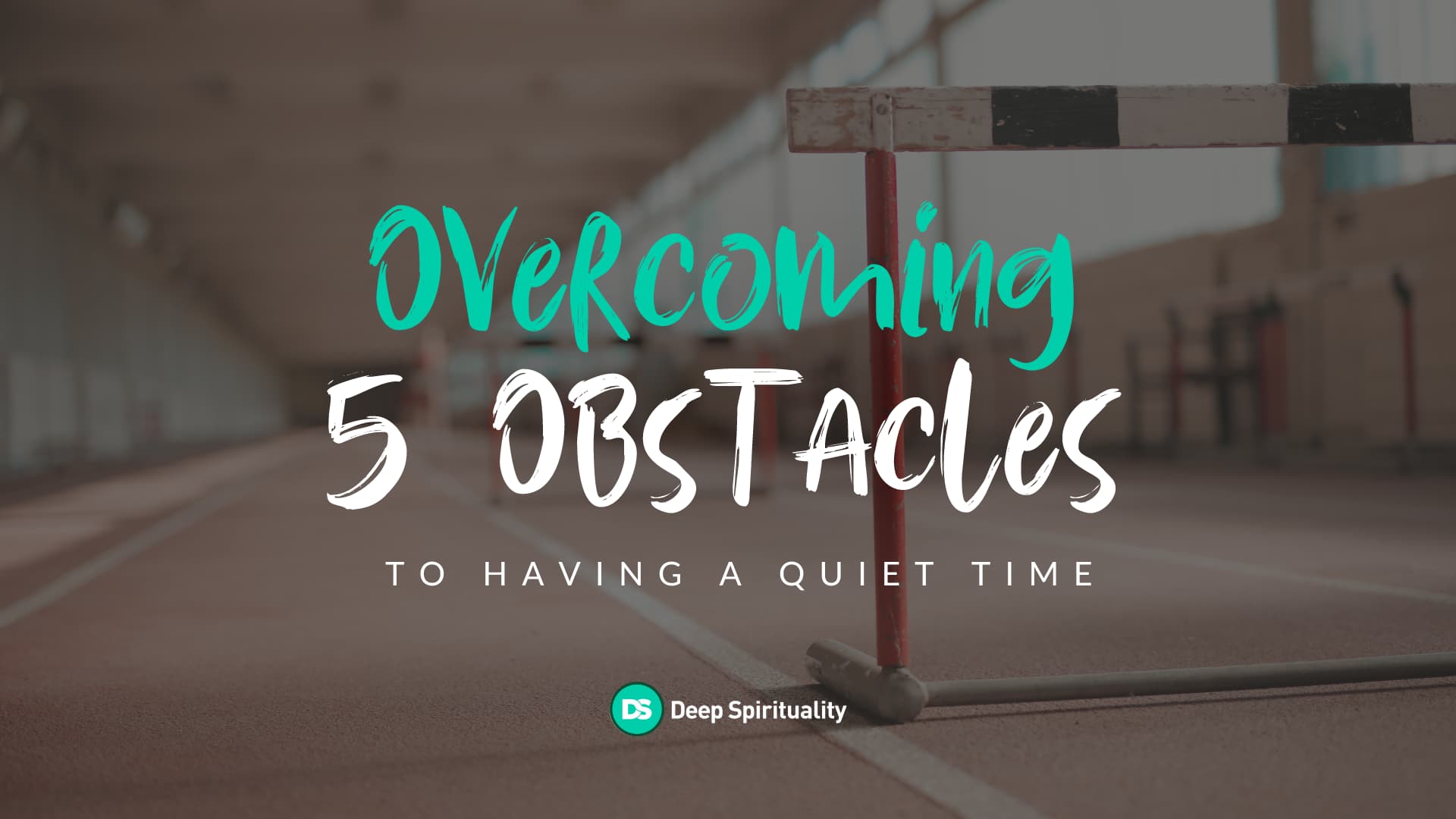I will remember the deeds of the Lord; yes, I will remember your miracles of long ago. I will consider all your works and meditate on all your mighty deeds.” Your ways, God, are holy. What god is as great as our God?
Psalm 77:11-13 NIV
A quiet time should be a form of meditation. This may be a foreign concept to many because meditation is most commonly associated with Eastern religions.
Yet, it is clear from Scripture that meditation should be a part of the Christian experience.
What can we learn from Eastern religious meditation to reclaim the truth of Scripture and become Christians who meditate?
First, we need to understand that Eastern religions as well as other groups who practice meditation consider it to be a means of changing or transforming the mind. What this means for us is that our quiet time should be more than a time to read the Scriptures and pray.
We should meditate on those Scriptures allowing us to pray focused, clear, and powerful prayers that change things.
The Scriptures describe this meditative state as quietness or stillness, where we refuse to let our mind be unsettled by things beyond our control, and instead focus completely on what God is doing and capable of doing in our lives.
Here are three passages that clarify this view of the meditative state necessary for a great quiet time:
Be still before the Lord and wait patiently for him; do not fret when people succeed in their ways, when they carry out their wicked schemes. [8] Refrain from anger and turn from wrath; do not fret—it leads only to evil.
Psalm 37:7-8 NIV
He says, “Be still, and know that I am God; I will be exalted among the nations, I will be exalted in the earth.”
Psalm 46:10 NIV
A calm and undisturbed mind and heart are the life and health of the body, but envy, jealousy, and wrath are like rottenness of the bones.
Proverbs 14:30 AMPC
Turning our Quiet Time into a meditative experience capable of calming and transforming our minds can be done in 30 minutes each morning, or if your work schedule is unconventional – then this can be done at whichever time the bulk of your daily activity begins.
Here are the three 10-minute sections of your daily quiet time that can get you started:
The first 10 minutes
There are two steps to getting into a spiritually focused and meditative state:
- Quiet My Heart – Pray and let go of every anxiety distracting you from God.
- Focus My Mind – Read a Scripture at least 3 times that helps you focus only on God.
The second 10 minutes
This section of your Quiet Time should actually be “quiet” because of what you did in the first 10 minutes. Your mind should slow down. Yes, you can go 10 minutes without checking your smartphone notifications, or trying to control something we all know can’t be controlled. It’s just 10 minutes!
- Express My Emotions – Pray to identify your dominant positive and negative emotions.
- Confess My Guilt – Pray to identify the sins clouding or distracting your mind with guilt.
Now, let God help you with your emotions, especially the powerful guilt which debilitates too many Christians. It is difficult to get this done in 10 minutes, but your goal is to unburden your heart and soul, so you feel free to attack your day.
The final 10 minutes
Reading and applying Scripture is the key to the final 10 minutes. This section is only possible if you prepare what you are going to read ahead of time.
- Create or Sustain Your Plan – Read Scripture that guides and encourages you to stick with your plan for personal growth, building your life, or helping others.
- Make Your Requests – Specifically ask God for what you need to advance your plan.
The 30-minute Quiet Time is a meditative starter. It focuses your mind and heart on God, and gives you a chance to reconnect with him. Additionally, it helps you stay focused on the plans God has laid on your heart, so you can make daily progress toward making those dreams become reality.
Go ahead, try it for 7 days. You will be amazed at how much it will change your life!
Browse series
More in
More in
As the editor in chief for Deep Spirituality, Russ Ewell writes, teaches, and innovates with his eyes on the future. His teaching is rooted in providing hope for those turned off by tradition and infused with vision for building a transformative church. His passion to inspire even the most skeptical to view God through fresh eyes can be found in his book, He's Not Who You Think He Is: Dropping Your Assumptions and Discovering God for Yourself.
As the editor in chief for Deep Spirituality, Russ Ewell writes, teaches, and innovates with his eyes on the future. His teaching is rooted in providing hope for those turned off by tradition and infused with vision for building a transformative church. His passion to inspire even the most skeptical to view God through fresh eyes can be found in his book, He's Not Who You Think He Is: Dropping Your Assumptions and Discovering God for Yourself.






